The Seeds of Gay Doom (V. Grindlock)
The 2023 specials that began RTD's disastrous second tenure
(Note: this essay is part of a series.)
A belief had been established in 2005 that Doctor Who must never be “like the bad old days” - bottle episodes, makeshift special effects, quirky home-made music scores. Rather, it must be mainstream and, in terms of production values, on par with the American competition.
That was feasible in 2005 when the American competition was Buffy the Vampire Slayer, but by 2021 it was The Rings of Power and Star Wars: The Mandalorian. American budgets had decupled since 2005. There was no way a British TV show could compete.
So the BBC faced two huge problems.
Due to economic issues, they couldn’t maintain the show’s huge budget - but, due to the afore-mentioned belief, downsizing was unthinkable.
Even with its huge budget, it was haemorrhaging viewers and failing to rival Star Trek.
The BBC thought, in line with the afore-mentioned belief, that the only solution was to go even bigger.
Clearly, outside financing was now essential. That could only be achieved by transforming Doctor Who into a less British, more global property.
But the BBC knew that scale and glitz alone wouldn’t be enough. The writing quality had fallen off a cliff. It would have to be brought back to the level of its 2000s heyday.
There was only one man they trusted with these monumental challenges.
They approached Russell T Davies in March 2021. Funnily enough, he’d been having similar ideas about how the show should evolve, just happening to tell Empire four months earlier:
I think I did the Doctor Who side of things ten years too early. Imagine doing it now with a streaming budget, like Stranger Things or Good Omens.
He elaborated two months later, with talk of a Marvel-style “Whoniverse” of spin-off series.
However, he claims the idea to stream was not his, but the BBC’s.
But now, it wasn’t my idea, it was the BBC’s notion to go for a streamer to invest in the show worldwide, which I completely agree with
Either way, Davies and the BBC were agreed on the following:
Doctor Who had to compete with American fare
expensive though the show already was, it couldn’t compete
its budget had to be increased
streaming was the way to get a bigger budget
Once Davies’ return as showrunner was announced in September 2021, things came together: the BBC struck a streaming deal with Disney, who injected massive dollars into the show’s budget.
The amount has never been disclosed but is rumoured to be $100m (£77m). Given two seasons of eight episodes, two Christmas specials, the three anniversary specials and a five-episode spin-off series, this would be £3m per episode. Adding the BBC’s own contribution to that, it seems likely that the budget for “RTD2” Doctor Who is at least £4m per episode. (I suspect it is more like £5m, but let’s go with £4m.) By British standards, that is huge. To put it in perspective, during Davies’ first tenure the budget was about £1.3m per episode (in today’s money), and in 1963 it was £0.12m for the same duration.
The BBC Head of Drama, responsible for bringing Davies back, was Piers Wenger. On why he chose Davies, Wenger said:
I almost think that I don’t need to answer that question. I think bringing back Russell for Doctor Who was one of the least painful decisions I’ve ever had to make. How will he evolve that show? I mean, he is a man with a vision, for sure.
Critics were hopeful:
His recent work on A Very English Scandal, Years and Years and It’s A Sin suggests one of our greatest living dramatists is still peaking. He’s not travelling back in time to recapture past glories. If he’s coming back it’s because he’s found a way to save Who again.
But it wasn’t just Davies who was back. He brought with him the executive team from 2005 - Jane Tranter, Julie Gardner and Phil Collinson. Even his friend Murray Gold was back as music composer. Tranter and Gardner had created a private production company, Bad Wolf, which would make the show for the BBC and Disney. That meant there would be a profit motive, which might deter them from going too “woke”. Then again, Bad Wolf was promptly acquired by global conglomerate Sony, perhaps making profit less important.
According to the Times, Davies had the BBC over a barrel to such an extent that he was able to insist they surrender total creative control of the show to Bad Wolf (effectively, to him). The newspaper’s source remarked:
It’s extraordinary that BBC Studios has just rolled over.
A fan site commented:
it demonstrates the clout that Davies now has in the television industry: he can ask for virtually anything he wants, and it will be given to him.
But, while the BBC had great faith in Davies, and while he was indeed powerful enough to get whatever he wanted, it should also be remembered that, as Chris Chibnall had unwittingly revealed, nobody else in Britain wanted the job.
At first, fans were optimistic. Yes, the show was in a dreadful condition, but, in theory, everything was in place to bring it back to the popularity it had once enjoyed. Sure, wokery might be all over sci-fi nowadays, but Davies knew how to prevent politics from ruining drama. And if one man knew what makes Doctor Who work as a show, it was him.
In May 2022 came the announcement of whom Davies had cast as the Doctor: a flamboyant gay Black man, Ncuti Gatwa. Finally, at long last, after sixty racist years, the Doctor would be played by a man of colour! And a massively gay one at that! But Davies claimed it wasn’t a diversity hire but due to Gatwa’s sheer talent and personality:
We auditioned people of colour, White people, nonbinary people, women, every sexuality. We really went across the board. And then he came in and stole it. He stole it.
This press photo emerged, which certainly gave me the willies:
In October 2022 Davies announced that climate change would feature heavily in the show, along with “a long list” of other “issues”.
Commenting on all of these developments in late 2022, I predicted that Davies would inject new life into the show, but that it would probably only last about three seasons. My reasoning was: the show had been so thoroughly scuttled by Chris Chibnall that nothing could restore it to its heyday, and an effeminate Black man as the Doctor would do additional damage, and Davies’ sheer writing talent would restore ratings somewhat but not enough, so the BBC would pull the plug after three seasons.
The question was to what extent Davies could resist the tendency (by now ubiquitous in TV science-fiction) to be aggressively woke, alienating dedicated fans and the general public alike. In a January 2023 interview, he seemed to share this exasperation:
I do a lot of mentoring, and there are voices wanting to be heard – of any gender or ethnicity – who consider themselves invisible. They hate the media that ignores them, and they’re trapped into wanting a job in that medium purely to increase representation.
I read their scripts and they’re rubbish. They don’t actually love television, so they don’t know how to write for it.
This seems to be an acknowledgement of a very real problem: there are minority people who get into writing TV drama because they feel under-represented, not because they actually have any love of drama or talent for writing it. These are the people who become “diversity hires”, and who fill media with badly-written and aggressively-political dreck. Davies seemed to agree this was a problem. People felt reassured.
Over the course of 2023, however, further announcements made it clear that, far from rowing back on the wokery that had brought Doctor Who to its knees, Davies was going to double down on it. There was to be a mixed-race transgender companion. The Doctor’s trusty sonic screwdriver was being redesigned because it looked too much like a gun (nonsense) and this might encourage kids to pretend to shoot at each other (horrors!). The legendary crippled villain Davros was to be portrayed only pre-injury from now on, because portraying him post-injury (as had been done for the last 50 years) might vilify wheelchair-users. Davies claimed to have long had reservations about this - even though he had actually introduced two wheelchair-bound villains during his previous tenure, John Lumic and Max Capricorn.
At the start of November 2023 it was announced that the season counter was being reset. The forthcoming 2024 season would not be called “14”, but “1”. Resetting like this had made sense in 2005 because of the long hiatus since the “classic” show, but this time it seemed unnecessary. The suspicion was that Disney had insisted on a “year zero”.
But that was six months away, in May 2024. Before that, there would be some special episodes. These, the first episodes of the RTD2 era, were due imminently: three specials to mark the show’s 60th anniversary (with a returning David Tennant) then the Christmas special (with Ncuti Gatwa).
Just before broadcasting, Davies insulted fans who objected to a trans companion:
[There are people] full of absolute hate, and venom, and destruction and violence who would like to see that sort of thing wiped off the screen entirely. And shame on you, and good luck to you in your lonely lives.
Nevertheless, some people still held out hope that Davies’ new tenure wouldn’t be woke-heavy, that he wouldn’t let politics get in the way of his creative talent. Once broadcasting began, the situation became clear immediately.
But before we get to that, let’s review this comment he made about the BBC’s approach to him in 2021:
They said, “We want to make Doctor Who bigger. We want to take it to a streamer. We want to go worldwide. We want it to have a bigger budget. And we want it to be up there with Stranger Things and Star Trek and the Marvel shows. We think that it’s good enough, and we believe in the show to know that it can have that heft, weight, and swagger.”
[That pitch was] music to my ears…
It was one of those times in my life where people said, “Oh, you can do anything you want now.” It’s very rarely true for a writer, but actually, that was one of those moments when I thought, “Okay, I can do whatever I want.”
60th anniversary specials:
the Doctor finds a man sexually attractive
the Doctor is aided by tough, no-nonsense, domineering “girl boss” women - four of them. (And one of them is in a wheelchair.)
Donna’s child is mixed-race and transgender
said character is “deadnamed” by transphobic bullies
the Doctor is berated by said character for assuming an alien’s pronouns
the Doctor is berated for being “male presenting” by said character and its smug, race-mixing mother
said character’s transgenderism is crucial to the resolution of the plot
Isaac Newton depicted as Indian
bitchy remark about Brexit (UNIT’s budget has shrunk because of it)
A notable thing about these specials is that they entirely ignored the 60th anniversary, even though their purpose, their reason for existing, was to celebrate it. This is a stark contrast with ten years earlier when Moffat crafted a masterful story to honour the 50th anniversary. Did sixty years of the show not interest Davies? This was a sign of something being very wrong about his return, and the attitude he was bringing to it.
The specials got around 7.5 million viewers - good, but not the great revival hoped for. Crucially, a million viewers were lost between the first and third episode. This is significant as they starred David Tennant, the public’s favourite in the role.
The numbers jumped back up for the Christmas special, Gatwa’s first solo outing. I think this was much like Jodie Whittaker’s debut episode: a lot of casual viewers tuning in for the novelty, and a lot of fans giving the new Doctor a chance. We will discuss him in a moment, but first it is important to note that, whereas the anniversary specials had been written as a sort of “bridge” between the 2005-2022 era and the new era, the Christmas special was the first “proper” episode of that new era. One sign of that was, along with the new Doctor and his companion, a general dialling up of the casual wokery.
2023 Christmas special:
Black (and flamboyantly gay) Doctor
in a nightclub, the Doctor dances in a skirt in an extremely gay manner
Ruby’s adoptive mother is a Black lesbian
the band Ruby plays in is fronted by a trans-woman
the Doctor references a gay sex act
Going by the characters seen in this episode, you would think that every second person in Britain is some kind of sexual deviant. It was completely absurd… but it was exactly what Davies had promised.
There is a lot to be said about the drastic change to the show’s main character.
Davies had already changed the Doctor quite radically back in 2005 by divorcing him from his people (and actually setting him against his people) and eliminating several of his classic traits: education, erudition, aristocratic class and eccentricity. But he at least replaced those traits with ones that a 2005 audience could “identify with” and enjoy.
Also, several traits that he did not eliminate back then were the Doctor’s heroism, intelligence and stoicism. These together amounted to masculinity. It was an unusual type of masculinity, yes, but still it provided something that intelligent, sensitive boys could identify with, and it pointed them in a useful, fairly healthy direction.
In 2023, Davies now eliminated those remaining traits. The result is a character entirely unlike the Doctor, and one that is difficult for anybody to identify with (especially intelligent boys) and which actively repels a large section of the mainstream public. In short, this is a gay Doctor. A very gay Doctor.
How many fathers, seeing photos like this, will be comfortable with their sons watching the show? I expect that large numbers of parents, especially fathers, will have made sure their sons steer clear of it.
But this sort of casting was a conscious decision on Davies’ part. He seems to have set out to find an actor who would be the opposite of the traditional Doctor.
Along came Ncuti, who is one of those actors who pour with feeling. When he is sad, tears pour from his eyes; when he is happy, that smile lights up the universe.
Why did Davies want an actor like this? In one telling, it was to encourage children to express their emotions:
I wanted people, particularly our younger audience, to know that they can express their emotions in an open, healthy way.
But elsewhere, he said that children are already like this, so the Doctor needed to “get with the times”:
[The Doctor] has been marvellously inexpressive and enigmatic and alien, and great actors have done that very well. [But in 2024] I want a young audience watching, and they talk about their emotions, express their emotions in a healthy way.
Davies conflates how he wants the world to be with how he “believes” it already is. He does the same with regard to sexuality; in one place he will say he is deliberately putting in gay content so as to promote open-mindedness, but elsewhere he will say:
I just think it doesn’t even feel particularly queer to me. It feels natural, it’s 2024, and we’re all embracing this.
Either way, the result of his decisions is a Doctor that is emotionally incontinent, cries all the time, gets frightened and runs away, and often has no idea what he’s doing or should be doing. This would get much worse in Season 1. In four of the eight episodes of that, his debut season, it falls to other characters to “save the day” since he is so impractical.
This is not the Doctor, nor is it an appealing character - certainly not to children.
He has no sincere warmth and no manly steadiness. Children will not find him comforting or reassuring. They want adults who clarify, explain, fix and rescue. They want adults who are calm and wise, who take control and make things right. They want, albeit with some allowance for naughtiness and wonder, heroes and authority figures. Every Doctor up to the 12th (Peter Capaldi) ticked these boxes.
It was a certain type of English heroism - erudite, inquisitive, compassionate, yet always ready for a scrap. I would say the 3rd and 4th (Jon Pertwee and Tom Baker) epitomised it. During Baker’s time, our culture slowly turned against posh male predominance, so after him the Doctor became more boyish and flawed (Davison), then less patriarchal and more professorial (McCoy), then less elite and more everyman (Eccleston), then less authoritative and more playful (Smith), and then he became a woman (Whittaker), and now he is a gay, shallow, hyperactive twink.
He is, probably, the kind of man that Russell T Davies fantasises about - young, fit, exotic, sassy, full of energy, hyper-emotional, hyper-sexual - and completely unlike the Doctor over the entire 60 years we have known him.
Worse is that, in order to make the Doctor homosexual, they had to make him sexual, when he has always been asexual. Compare these photos, showing him in 2010 and 2024:

Of course, all of this is without even mentioning the change of race. This is the elephant in the room that few dare to mention, even among the many detractors of the RTD2 era. They daren’t complain that, having always been White, the Doctor suddenly isn’t any more.
Why is this wrong? There is the argument that the Doctor represents a cultural continuity and an archetype that is of a certain ethnic group and that he should remain such, that racial variants are just not plausible with the persona he is supposed to have. All of that is true. However, I would favour a more brutal argument: the Doctor is a character that, by being White and “very British”, has belonged to the native British people for sixty years and ever since his creation, and to change him racially is to remove him from the native British people. And that, in case it need be said, is wrong.
Nobody would celebrate such racial appropriation being done with a non-white character - say, if a Japanese character like Mr Miyagi were recast as Arab. We would instinctively see it as a form of disenfranchising of Japanese people, and recognise that it fundamentally alters the character, making him (at best) a parody of what he was.
However, Davies went even further than that. He chose an actor who is not merely Black, but cartoonishly so.
Ncuti Gatwa is not “quiet Black” or “middle-class Black” or “improbable lawyer Black” - he is neon Black. You could insert him into an old racist cartoon about what “negros” are like - excitable, loud, unpredictable, emotional, hyper-sexual - and the only thing missing would be a pineapple on his head. But how is this relevant to him playing the Doctor? Intelligent white boys (the show’s core audience) will never identify with him, nor see in him anything that they could ever be.
Sometimes it is better for us if we don’t get what we really want. For Davies, making his childhood hero more like his ideal lover might have been a lifelong dream, but it is one that should never have been fulfilled. In doing so, he has made a mockery of Doctor Who and a fool of himself.
The 2023 Christmas special was when the public made their decision about Ncuti Gatwa. That decision would be revealed five months later with the airing of his first proper season, the first of the RTD2 era - Disney’s “Season 1”.
But what was already clear was that this era would not row back on any of the wokery that had brought the show to its knees and driven the BBC to such desperation that they had given Davies total free rein. Now that he had that, he was taking it to an entirely new level, galvanising it with his own victimhood complex that had been brewing all through his (successful) life.
After the lessons of the Moffat and Chibnall tenures, to proceed in this direction was utter folly. It was as if Davies wanted low ratings.
Well, he got them.






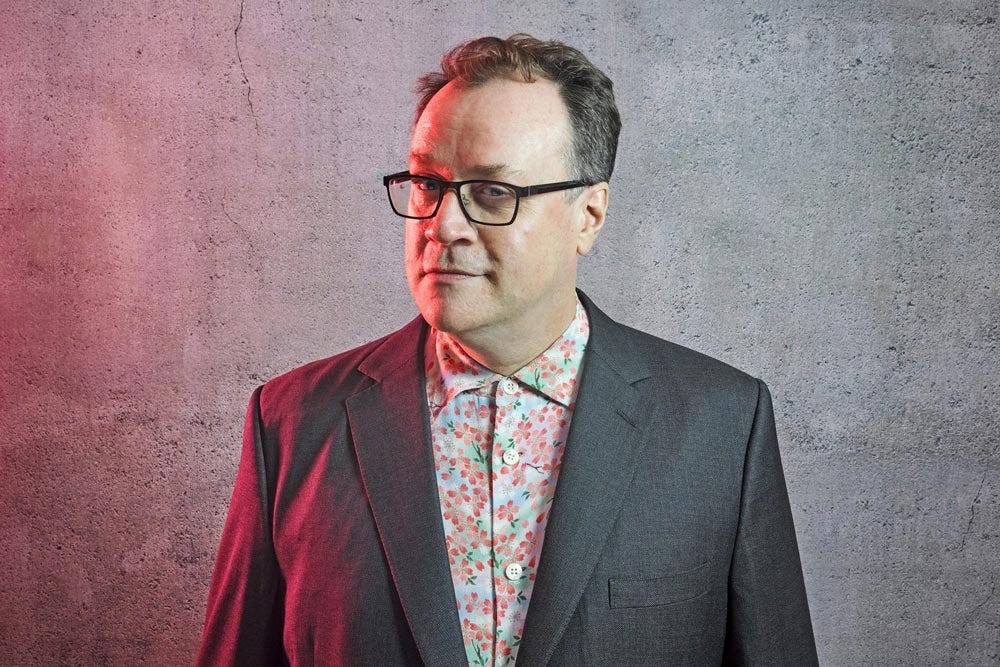
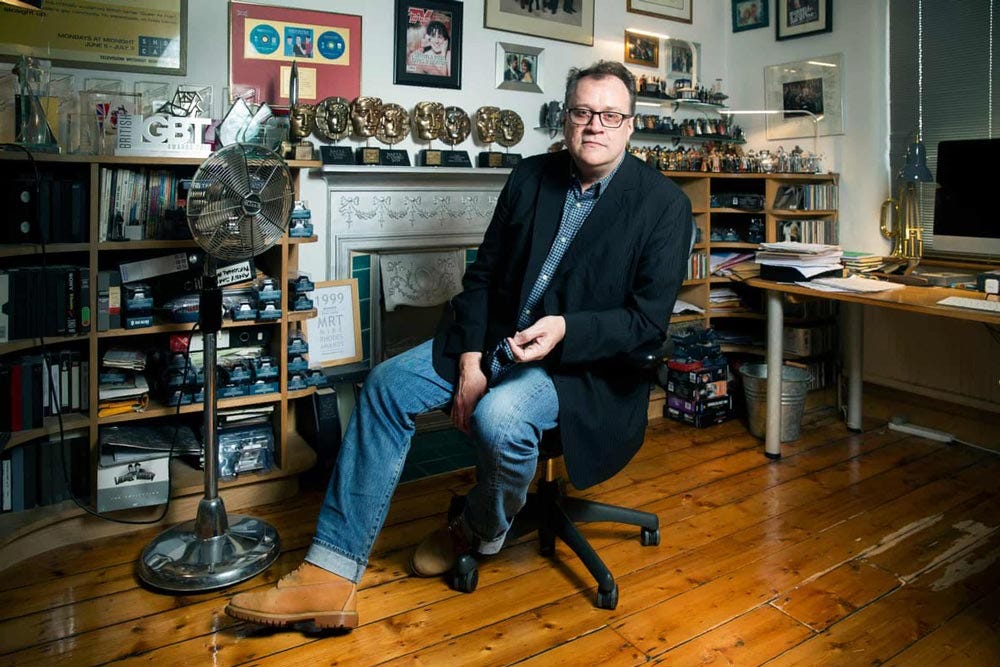



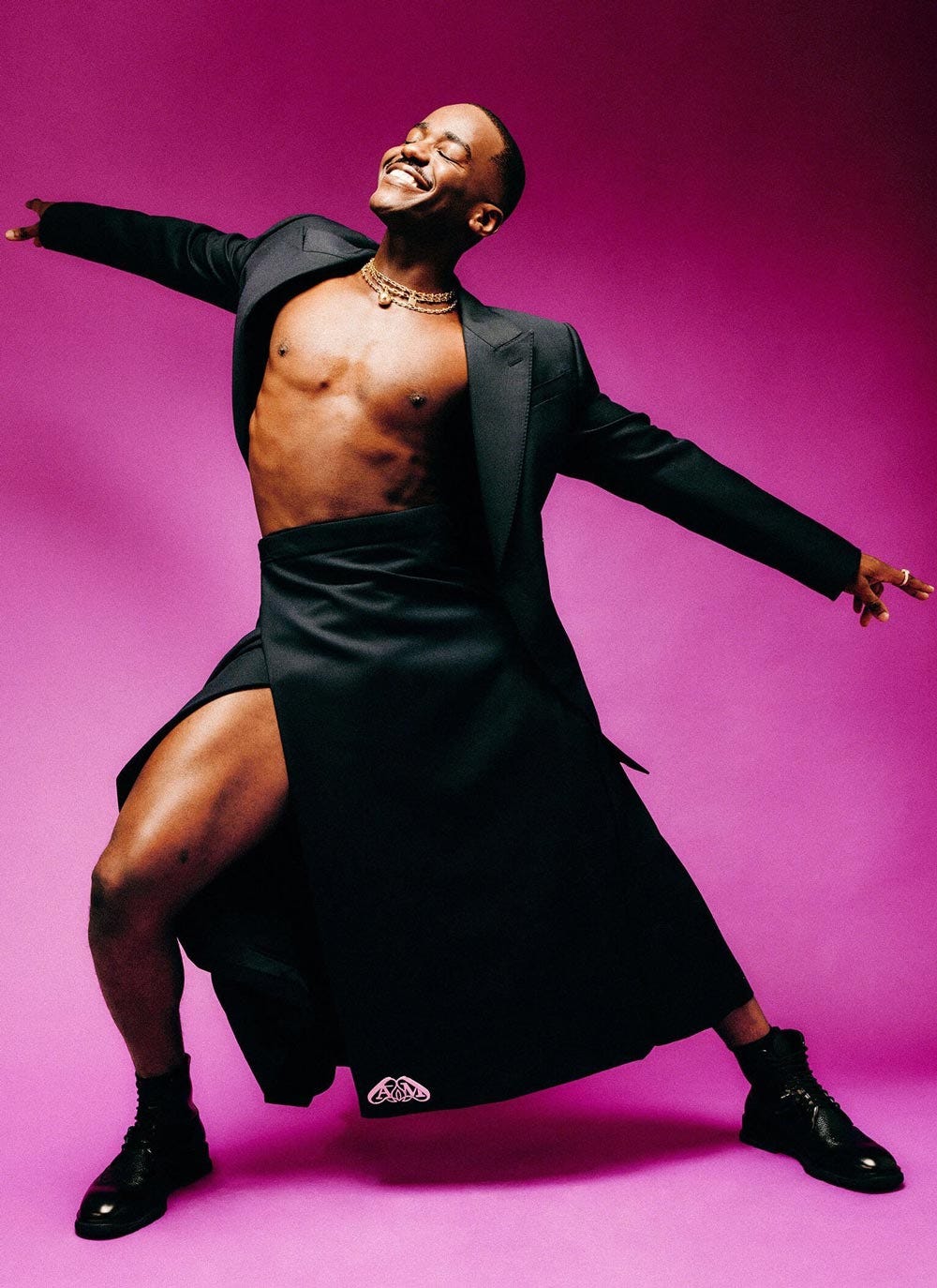
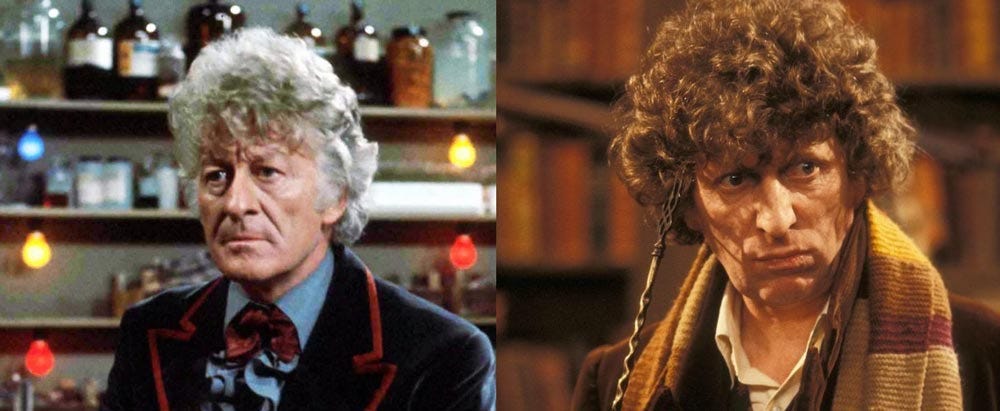
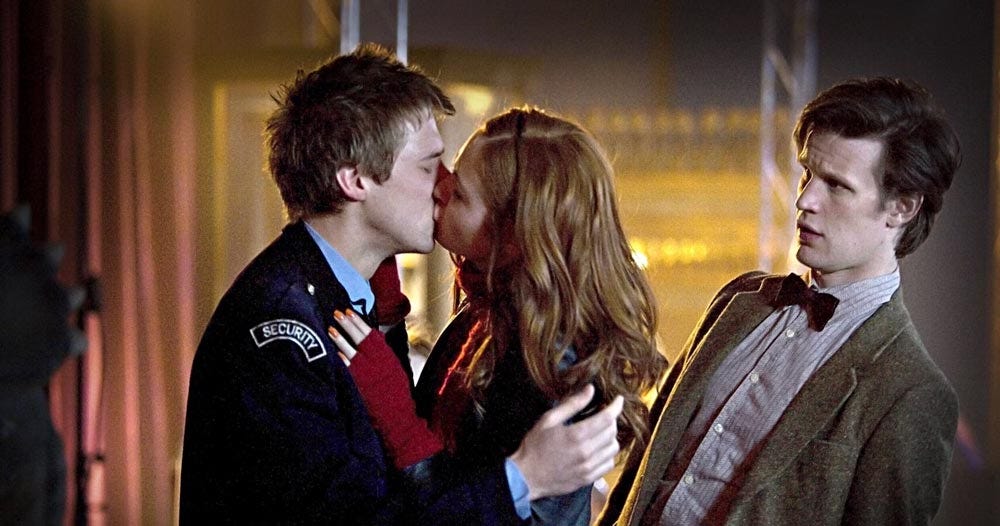

I have enjoyed this series very much - if reading about such a vile man can be said to be enjoyable. Of course the powers that (shouldn’t) be want as many black and brown faces on tv as possible as they want to fool the masked morons into believing that the U.K. was always chock full of black people (and out and ‘proud’ gays).
My husband and I recently watched a film called Nasty Little Letters. It was set in a very rural Norfolk village during the early 1920s. The female police constable was Indian. The post mistress was black; the judge at the trial was a black man. The Indian police woman’s father had been a policeman, too, in the same village in the early 1900s. There were other Indian characters, although I have to presume, being fair, that they were related to the Indian policewoman, although that wasn’t clear. None of the white characters noticed this, or commented on it, they were all Martin Luther King colour blind. The lead character was a white, very foul mouthed Irish woman with an illegitimate child and oh yes…a black lover who lived with her openly. For all this the middle aged white woman who was her neighbour wanted to be her best friend, until she didn’t, and started sending her those nasty letters. The letters were cartoonishly, childishly pornographic (perhaps they were, the film was ‘based’ on a true story, perhaps the writers had read the original letters…who knows…)
So there we are. In remote Norfolk villages in the 1920s black and brown people held very middle and upper middle class jobs (they were judges!) and didn’t face any ghettoisation, were not shunned or even recognised as different. Loud, foul mouthed Irish women could live with a mild mannered black man and everyone fell over themselves to be kind and accommodating until she was suspected of being the nasty letter writer.
What are we meant to take from this ridiculousness? That the U.K. was never ever a racist country, but was accepting of everyone, no matter their race or immoral behaviour. Oh no! Surely that’s not what the powers that be want us to believe? Are we all far right racists who can’t even protest when one of these blacks kills our children or are we not? Not, if you were to watch this truly idiotic film and believed its portrayal of the UK’s past.
The target audience of once, present and future masked morons perhaps think there were more blacks in the U.K. 100 years ago, maybe not, they don’t really care. It doesn’t matter to most of them, they let the shite wash over their heads because isn’t that Olivia Coleman so lovely - she played the middle aged Queen, don’t you know? My sister in law loved this film so much she’s going to watch it again (she was a nurse who wanted to volunteer for jabbing other masked morons with the poison jabs). Her husband, my brother, didn’t even notice the black judge and laughed when I mentioned it. So funny! So what?
So what are these moronic film producers, directors and casting agents up to? Do they want to show that white people of the past were never racist? Or do they want to rub whites’ noses in diversity? Do they want it both ways - blacks were always amongst us, doing the exact same jobs, living on the exact same streets and in the exact same houses (nicer houses in the case of this film)? But at the same time whites are extremely racist and must be taught not to be…It’s a puzzle, is it not?
The modern world is so childish and foolish it’s hard to put up with. Masked morons, once, future and present rule. No more tv for me: that’s it, that’s enough of the utter, utter shite.
If there's any show on television that needs to go into hibernation for a minimum of twenty years, it's Doctor Who. In the meantime I will cherish my DVD collection of Classic Who adventures.
I've very much enjoyed your series talking about this, by the way. Thank you.